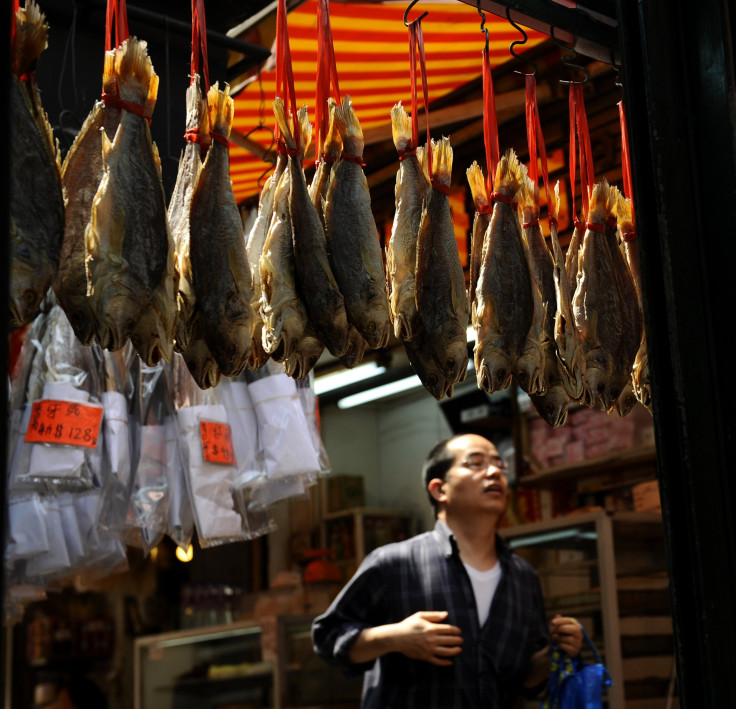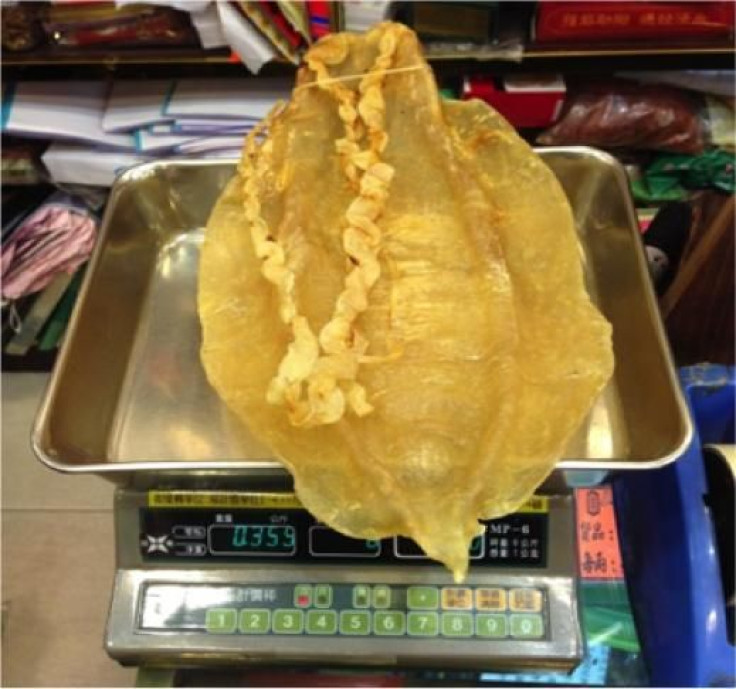Endangered Vaquita Facing Extinction Due To Chinese Demand For Totoaba Bladders

One of the world's rarest marine mammals is being driven to extinction by demand in China for a rare fish bladder, according to a report released Wednesday by environmental advocacy group Greenpeace.
The vaquita is a small porpoise that is found only in the Gulf of California. But half of their population has been killed in the last three years, many of them by fishing nets set illegally to capture an endangered fish called the totoaba, the bladder of which can reportedly fetch tens or even hundreds of thousands of dollars on the Chinese market.
Only 97 vaquita are believed to remain in the wild, and experts believe the species will be extinct by 2018 unless drastic steps are taken urgently. According to Greenpeace, the only way to save the species from extinction is to curb the illegal trade in totoaba.
While the trade is illegal in both Mexico and the United States, undercover Greenpeace activists claimed to have found numerous shops in Hong Kong offering totoaba bladders for sale, at prices ranging from $5,000 to almost $65,000. Some traders were recorded on video claiming to have sold bladders for as much as $645,000.

Mexican gangs are responsible for obtaining the totoaba, Silvia Diaz Perez of Greenpeace Mexico told the South China Morning Post. "If you look at the price of swim bladder, it is even more lucrative than cocaine," she said.
Despite Mexican and U.S. authorities cracking down on the trade, it appears to be flourishing, in part due to the scarcity of a similar animal in China, the bahaba, and lax customs enforcement in Hong Kong, which allows contraband to be easily imported and then transferred to buyers in mainland China.
According to the report, Greenpeace activists mailed and carried similar types of fish bladders, from a species that is not endangered, on flights bound for Hong Kong. None were intercepted, or raised the suspicions of customs officials.
China is one of the largest markets in the world for illegal trade in endangered species. Substances like rhino horn can fetch huge sums in the country, where they are used in traditional medicine. Many of the most popular items are claimed to restore or enhance male potency, though there is little scientific evidence to support such claims.
© Copyright IBTimes 2024. All rights reserved.












